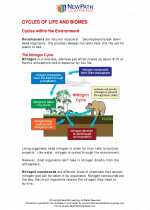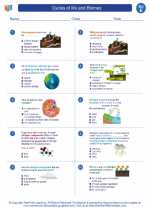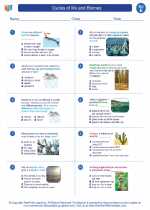Solar Energy
Solar energy is the energy derived from the sun's radiation. It is a renewable and sustainable source of energy that can be harnessed using various technologies to generate electricity, heat, and light.
How Does Solar Energy Work?
When sunlight reaches the Earth, it can be converted into usable energy through several methods:
- Photovoltaic (PV) Cells: These cells, commonly known as solar panels, convert sunlight directly into electricity through the photovoltaic effect.
- Solar Thermal Systems: These systems use sunlight to heat a fluid, typically water or an antifreeze solution, to generate steam and drive a turbine to produce electricity.
- Passive Solar Heating: Buildings can be designed to capture and store solar heat to provide heating and lighting without the need for mechanical systems.
Advantages of Solar Energy
Solar energy offers numerous advantages, including:
- Renewable and Sustainable
- Reduces Greenhouse Gas Emissions
- Low Operating Costs
- Low Maintenance
- Reduces Reliance on Fossil Fuels
Challenges of Solar Energy
Despite its benefits, solar energy also presents some challenges, such as:
- Intermittency (dependence on sunlight)
- High Initial Costs
- Storage and Distribution Limitations
- Land Use for Large-Scale Installations
Study Guide
To understand solar energy better, consider the following study topics:
- Basic Principles of Solar Radiation
- Types of Solar Energy Technologies
- Advantages and Disadvantages of Solar Energy
- Applications of Solar Energy in Different Sectors (Residential, Commercial, Industrial)
- Environmental Impacts of Solar Energy
Additionally, it can be helpful to explore the history of solar energy, current trends in solar technology, and the future potential of solar energy as a major source of power.
By studying these topics, you will gain a comprehensive understanding of solar energy and its significance in the context of renewable energy and sustainability.
.◂Science Worksheets and Study Guides Fifth Grade. Cycles of life and Biomes

 Worksheet/Answer key
Worksheet/Answer key
 Worksheet/Answer key
Worksheet/Answer key
 Worksheet/Answer key
Worksheet/Answer key
 Worksheet/Answer key
Worksheet/Answer key
 Vocabulary/Answer key
Vocabulary/Answer key
 Vocabulary/Answer key
Vocabulary/Answer key
